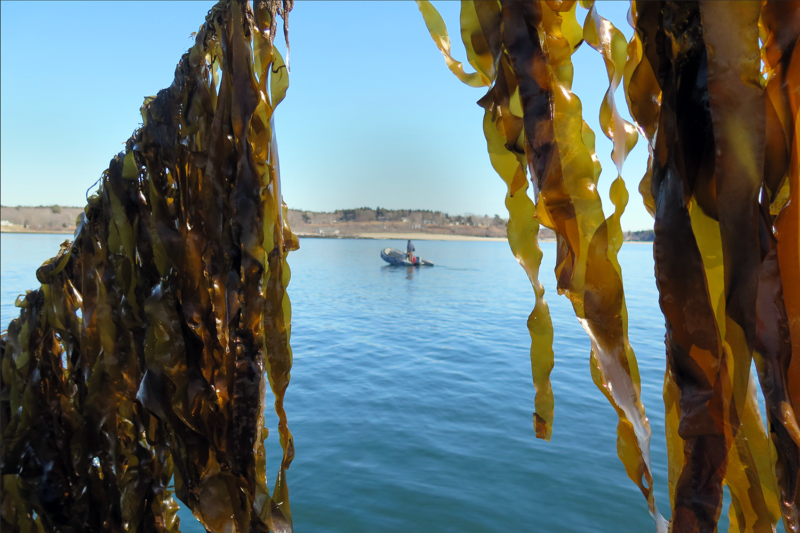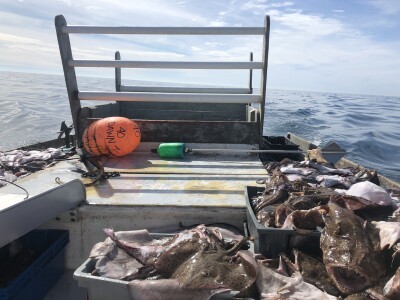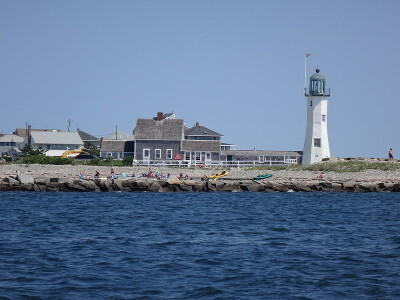Seaweed, or sea vegetables, have been on a growth trajectory for the past 10 years. What started as a small industry has blossomed into a sustainable economic engine for coastal communities from New York to Maine, who have faced slowdowns in other once-dominant fisheries.
“Fifteen percent of Maine’s aquaculture lease and limited-purpose aquaculture LPA holders (47 individuals) also hold a commercial lobster fishing license. Out of those 47, 12 of them farm kelp. Out of 60 total kelp farmers in Maine, that’s 20 percent,” says Afton Hupper of the Maine Aquaculture Association. “Lobstermen are already equipped with much of the gear required to start a kelp farm,” adds Hupper. “It is a good way to diversify and supplement their income.”
In Maine, harvest of all seaweed species peaked in 2018, with 22 million pounds, according to Maine Department of Marine Resources data. But a recent Maine Supreme Judicial Court ruling has meant changes to the rockweed industry. Until this year, wild rockweed (Ascophyllum nodosum) — with landings consistently making up more than 95 percent of all landings statewide — was harvested along coastlines. Last year, it was valued under $1 million at the docks.
But now, permission from landowners is required to harvest, since the court determined rockweed in the intertidal zone to be the landowner’s private property. Maine landowners now have a say in how rockweed is harvested, as well as the opportunity to benefit from the industry.
Trey Angera, of Springtide Seaweed in Gouldsboro, Maine, says the ruling has had an impact. “There is substantial uncertainty that is limiting growth,” says Angera. “Many harvesters that have worked areas a long time and have established relationships with landowners continue to harvest, but there has been friction in some areas where landowners are asserting their rights. The short story is that business looks to be down, and growth has and will be impacted.”
Concerns about the aquaculture leasing environment and increased opposition to aquaculture leases is being felt by some in Maine. “Reforms are certainly necessary, but not sure how they will come about,” Angera adds. Alaska is emerging as a much more progressive seaweed aquaculture jurisdiction, “and I expect it will soon eclipse Maine in capacity and the ability to attract new production capacity.”
With a value of all farmed seaweed produced in North America under $1 million, there is a push to get processors to invest and expand markets to full potential. In Maine, all seaweed combined is valued at $20 million a year.
The Maine Aquaculture Association says there are 60 individual farmers in Maine, and shifts from wild to aquaculture are ongoing. Farmers from New York to Maine operate under licenses from their own state. As cultivated seaweed has grown, so have markets for value-added fresh and frozen products. Maine-based Atlantic Sea Farms created frozen kelp smoothie cubes and seaweed kimchi, among other novel products.
Seaweed is popular in the U.S. health food sector. “Increased interest in diets like vegan, vegetarian, raw food and even paleo have increased people’s awareness and interest,” says Seraphina Erhart, of Maine Coast Sea Vegetables, which depends on wild harvest, for now. Erhart says dulse is popular — her company sells 65,000 to 80,000 dry pounds in various products yearly. “Ninety percent of all sales are domestic. International is a small portion of our sales, and not something we’re looking to grow,” she adds.
Erhart says, overall, there is a need for more education. “There is a need for better understanding… that seaweed is one industry, but that each species needs different things to thrive. There is a lack of understanding by the consumer that this is a seasonal (wild harvested or farmed) plant — and if we have a bad yield one year, we can’t just go someplace else in the world to get what we need.
“These plants thrive in specific areas for a reason and should not be grown in nonnative areas for risk of becoming an invasive elsewhere. This is important to keep in mind as demand grows."







